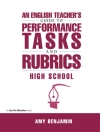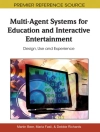In the history of psychology, ?rst-person methods, such as introspection, have come into disrepute in favor of the experimental approach. Yet the results of ?rst-person research – such as the famous studies provided by Maurice Merleau-Ponty in his Phenomenology of Perception – have indeed produced knowledge subsequently ascertained by neuroscienti?c research. The purpose of this book is to assist readers in developing ?rst-person methods as a rigorous approach. It is designed to assist researchers in the ?eld of education to develop their competencies in the ?rst-person approach. Concrete examples, descriptions, precepts, and possible ?ndings are provided to guide readers in their inquiries. Surrounding the inquiries, re?ective commentaries assist readers to become re?exively aware of what they are doing and thereby come to bring into discourse the methods they have used. That is, readers are assisted in developing research praxis by experiencing ?rst-person methods ?rst hand and then to become re?exively aware of the method as method.
Table des matières
Preface; Epigraph; 1. Towards a Rigorous Praxis of First-Person Method; PART I: ON SENSING AND SENSE; 2. On Vision and Seeing; 3. On Tact and Touching; 4. Hearing and Listening; 5. Tasting and Smelling; PART II: MUNDANE EXPERIENCES; 6. Memory; 7. On Becoming Significant; 8. On Being and Presence; 9. Crises and Suffering as Sources of Learning; 10. Thinking and Speaking; PART III: EKSTATIC KNOWING & LEARNING; 11. Problem Solving; 12. Work, Primary Experiences, and Accounts; 13. Reading.












